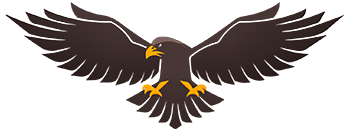Math
The curriculum is mathematically rich, offering students opportunities to learn important mathematical concepts and procedures with understanding. Technology is an essential component of the environment. Students confidently engage in complex mathematical tasks chosen carefully by teachers. They draw on knowledge from a wide variety of mathematical topics, sometimes approaching the problem from different mathematical perspectives or representing the mathematics in different ways until they find methods that enable them to make progress. Teachers help students make, refine, and explore conjectures on the basis of evidence and use a variety of reasoning and proof techniques to confirm or disprove their conjectures. Students are flexible and resourceful problem solvers. Alone or in groups and with access to technology, they work productively and reflectively, with the skilled guidance of their teachers. Orally and in writing, students communicate their ideas and results effectively. They value mathematics and engage actively in learning it." (National Council of Teachers of Mathematics Principles and Standards 2000, p. 3)
The vision for mathematics education described above is ambitious. Achieving it requires rigorous, standards-driven mathematics curricula, knowledgeable teachers who can integrate instruction with assessment, policies that enhance and support learning, classrooms with access to technology, and a commitment to both equity and excellence.
Math Coach - Monica Bastos, mbastos@newark.apppresser.com
Science
The FOSS program is correlated to human cognitive development. The activities are matched to the way students think at different times in their lives. It promotes practical experience in classrooms demonstrating that students learn best by doing. When involved in learning something of interest, students come to understand concepts more fully, remember them longer after the experience, and develop confidence in their ability to find things out and to understand science. Students are eager to read to find out information, and to share their experiences both verbally and in writing. Students have been very intrigued while conducting the various lessons because they are all hands-on. Students write their observations and findings in a science notebook. This has been proven to increase their cognitive development by using the scientific process by doing the following:
- Observing: using the senses to get information
- Communicating: talking, drawing, acting
- Comparing: pairing, one-to-one correspondence
- Organizing: grouping, serializing, sequencing
- Relating: cause and effect, classification
- Inferring: superordinate/subordinate classification, if/then reasoning, developing scientific law
- Applying: developing strategic plans, inventing
The academic sources emphasize that:
- learning moves from experience to abstractions. FOSS modules begin with hands-on investigations, then move students toward abstract ideas related to those investigations using simulations, models and readings.
- a child's ability to reason changes over time. FOSS designs investigations to enhance their reasoning abilities.
- fewer topics experienced in depth enhance learning better than many topics briefly visited. FOSS provides long-term (8-10 weeks) topical modules for each grade level, and the modules build upon each other within and across each strand, progressively moving students toward the grand ideas of science. The grand ideas of science are never learned in one lesson or in one class year.
- Practical experience in classrooms demonstrates that students learn best by doing. When students are involved in learning something of interest, students have a tendency to understand concepts more in depth. They also remember the experience and are able to build confidence. Students are able to express themselves when language arts experiences are embedded within the context of learning science; students improve in their ability to use their language skills. Students are able to express themselves both verbally and in writing. They also learn that every child can and will learn science. Foss program’s instructional pedagogical involve inquiry, hands on active learning, multisensory methods, student-to-student interaction, and discourse and reflective thinking.
- The middle school also works with living organisms such as the cow eye or the metamorphic cycle of a butterfly in the second grade.
Lead Science Teacher - Carmelot Dorcellus, cdorcellus@newark.apppresser.com
